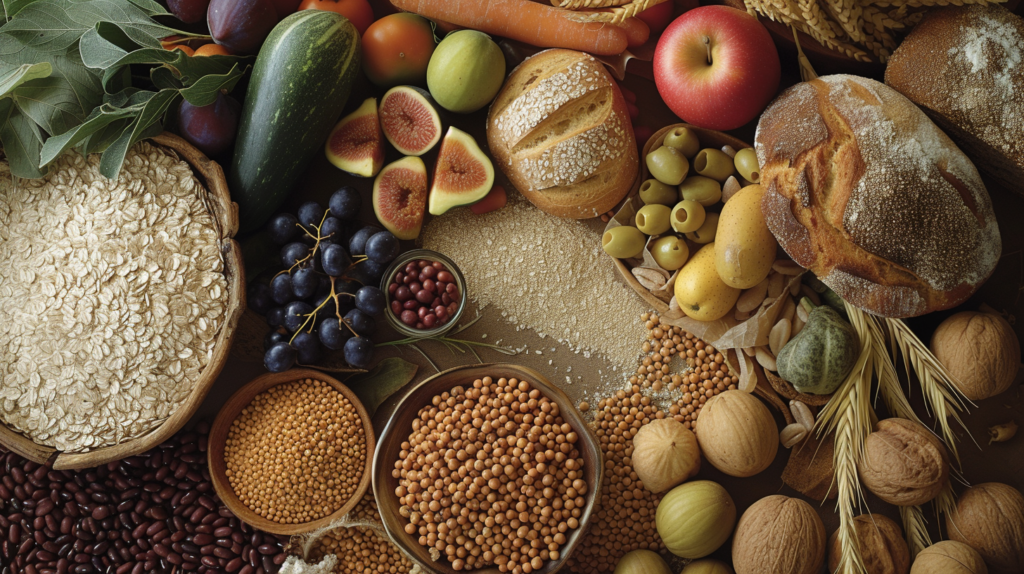The biblical era, a time spanning several centuries, witnessed a diet that was deeply rooted in the region’s agriculture, cultural practices, and religious laws. This blog delves into the primary components of what people used to eat during the Bible, providing a glimpse into their daily sustenance and dietary habits.

1. Plant-Based Staples and Natural Foods
The diet during biblical times was predominantly plant-based, with a heavy reliance on grains, fruits, vegetables, and legumes. Grains like wheat and barley were the cornerstones of their diet, mainly used for making bread and porridge. This reliance on whole grains reflects a diet high in fiber, vitamins, and minerals, aligning with today’s understanding of whole foods’ nutritional benefits.
Fruits such as figs, grapes, pomegranates, and olives were common and consumed in their natural state. These fruits, rich in essential nutrients and antioxidants, were vital for their health benefits and versatility. Vegetables like lentils, beans, cucumbers, and leeks were also integral to the diet, providing important dietary fibers and vitamins. The emphasis on natural, unprocessed plant foods underlines a diet that is in harmony with the human body’s evolutionary needs.
2. Meat, Fish, and Dairy in Moderation
Meat consumption during biblical times was relatively infrequent and often reserved for special occasions due to economic and religious considerations. When meat was consumed, it primarily included animals like goats, sheep, and cattle. The meat was free from modern processing and additives, making it a healthier option compared to today’s standard.
Fish, particularly for those near water bodies, was a valuable protein source. The fish consumed during this era were free from modern-day concerns like heavy metals and microplastics, making them a safer and more healthful choice. Dairy products, such as milk, cheese, and yoghurt from goats and sheep, were consumed in their more natural, possibly raw forms, providing a range of nutrients including calcium and beneficial enzymes.


3. Dietary Laws and Religious Influence
Dietary practices during biblical times were also significantly influenced by religious laws, especially in Jewish culture. These laws dictated specific foods that were permitted or forbidden, known as kosher laws. For example, pork was forbidden, and certain meat and dairy combinations were avoided. These dietary laws not only had religious significance but also impacted the overall dietary patterns, often ensuring the consumption of cleaner, properly slaughtered, and prepared foods.
Check out more on how we as humans ate during Jesus Christ’s time.
In conclusion, the diet during biblical times was largely based on natural, unprocessed foods with a strong emphasis on plant-based staples. Meat, fish, and dairy were consumed but in moderation, and dietary practices were often guided by religious and cultural norms. Understanding what people used to eat during the Bible provides valuable insights into the nutritional and cultural aspects of their diet, highlighting the benefits of a natural and minimally processed diet for optimal health.